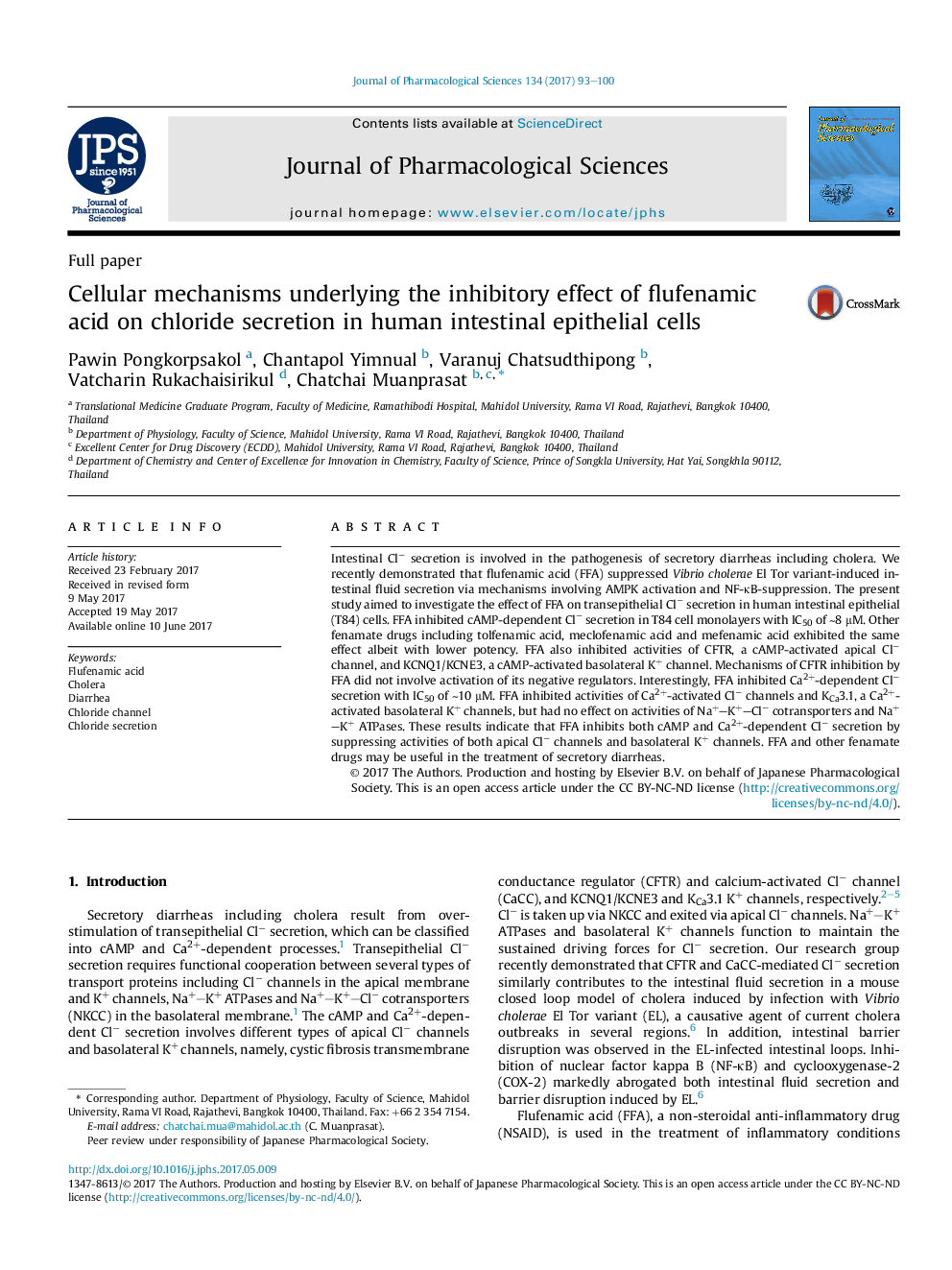| کد مقاله | کد نشریه | سال انتشار | مقاله انگلیسی | نسخه تمام متن |
|---|---|---|---|---|
| 8533160 | 1560456 | 2017 | 8 صفحه PDF | دانلود رایگان |
عنوان انگلیسی مقاله ISI
Cellular mechanisms underlying the inhibitory effect of flufenamic acid on chloride secretion in human intestinal epithelial cells
ترجمه فارسی عنوان
مکانیسم های سلولی تحت تاثیر مهار کننده اسید فلوفنامیک بر ترشح کلرید در سلول های اپیتلیال روده انسان
دانلود مقاله + سفارش ترجمه
دانلود مقاله ISI انگلیسی
رایگان برای ایرانیان
کلمات کلیدی
موضوعات مرتبط
علوم پزشکی و سلامت
داروسازی، سم شناسی و علوم دارویی
داروشناسی
چکیده انگلیسی
Intestinal Clâ secretion is involved in the pathogenesis of secretory diarrheas including cholera. We recently demonstrated that flufenamic acid (FFA) suppressed Vibrio cholerae El Tor variant-induced intestinal fluid secretion via mechanisms involving AMPK activation and NF-κB-suppression. The present study aimed to investigate the effect of FFA on transepithelial Clâ secretion in human intestinal epithelial (T84) cells. FFA inhibited cAMP-dependent Clâ secretion in T84 cell monolayers with IC50 of â¼8 μM. Other fenamate drugs including tolfenamic acid, meclofenamic acid and mefenamic acid exhibited the same effect albeit with lower potency. FFA also inhibited activities of CFTR, a cAMP-activated apical Clâ channel, and KCNQ1/KCNE3, a cAMP-activated basolateral K+ channel. Mechanisms of CFTR inhibition by FFA did not involve activation of its negative regulators. Interestingly, FFA inhibited Ca2+-dependent Clâ secretion with IC50 of â¼10 μM. FFA inhibited activities of Ca2+-activated Clâ channels and KCa3.1, a Ca2+-activated basolateral K+ channels, but had no effect on activities of Na+-K+-Clâ cotransporters and Na+-K+ ATPases. These results indicate that FFA inhibits both cAMP and Ca2+-dependent Clâ secretion by suppressing activities of both apical Clâ channels and basolateral K+ channels. FFA and other fenamate drugs may be useful in the treatment of secretory diarrheas.
ناشر
Database: Elsevier - ScienceDirect (ساینس دایرکت)
Journal: Journal of Pharmacological Sciences - Volume 134, Issue 2, June 2017, Pages 93-100
Journal: Journal of Pharmacological Sciences - Volume 134, Issue 2, June 2017, Pages 93-100
نویسندگان
Pawin Pongkorpsakol, Chantapol Yimnual, Varanuj Chatsudthipong, Vatcharin Rukachaisirikul, Chatchai Muanprasat,
